In case you missed it: offline vacations, converting cruise-haters, overlooked wonders, and dream believers
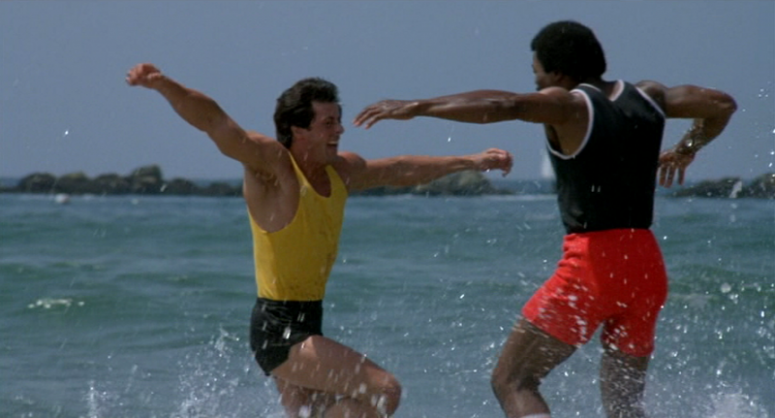
MGM
Here’s where my travel column went last month:

MGM
Here’s where my travel column went last month:

Courtesy Miramax
Smart people don’t make better decisions because they’re smart. They make better decisions, research shows, because they habitually do the following:
1. Remove unimportant decisions. If a decision doesn’t have an impact on your work, relationships, or spirit, then remove it from consideration. For example, many CEOs, heads of states, or creative people wear the same thing every day. Steve Jobs wore blue jeans and a black turtleneck everyday. Mark Zuckerberg only wears blue jeans and a gray t-shirt. Similarly, the leader of the free world only wears blue or gray suits, “Because I have too many other decisions to make,” the president recently told Vanity Fair. “I’m trying to pare down decisions,” he added. “I don’t want to make decisions about what I’m eating or wearing.”
For those of us without a personal chef, deciding what kinds of food to eat is a very important decision. But removing or outsourcing unimportant decisions to other people helps us make more meaningful decisions. One of the ways I achieve this is by removing TV from my life, limiting the number of sportsball games I watch, and restricting the number of news sources I read to only three per day. Doing so introduces more social encounters, analog experiences, and thought-provoking literature into my life, which make me a better writer (instead of regurgitator). Continue reading…

My wife taught me a valuable lesson recently.
For years, we’ve been planning to build a new house for our growing family. With that decision, we pegged a lot of other things to it, such as a new living room, new places to see, and even a family dog.
“Let’s update the living room after we move,” we told ourselves. “Let’s hold off on that vacation until we’re settled. Let’s wait for a dog until we have our own yard.”
We’ve held that belief for many years with various plans, not just shelter. Wait, wait, wait. When.. when… when… After, after, after. Continue reading…

Not-so deep thoughts by Blake Snow
Half of Americans say they lead “imbalanced” lives, according to a recent survey. I’m not sure if that’s better or worse than what I’ve anecdotally experienced. But it’s worse than other countries.
Of course, finding balance has always been a part of the human condition, at least since the industrial revolution, if not before—many recorded and Biblical accounts acknowledge this. Our imbalance plight accelerated in the ’80s, however, after we entered the information age.
Why does more imbalance exist in America than anywhere else? Continue reading…

Photo: Warner Bros.
Brian Hamilton is head of a million dollar software company. He believes work-life balance is a myth. “Working obsessive hours is nearly a requirement for success,” he writes for Entrepreneur. “For those who feel possessed by entrepreneurship and want to get their idea or product out to the world, you can have work-life balance, as long as the two are one in the same.”
What Hamilton is describing is the trendy practice of anything-goes, work-life blending, which treats imbalance as a pipe-dream at best, a casualty of war at worst. To that I say: Keep telling yourself that. The only thing that seems to change peoples’ minds is a death bead. After not being true to oneself, overwork is the second biggest regret of the dying.
Deep down, I think even Hamilton and others like him know this. “The ability to compartmentalize and separate work,” he concedes, “probably leads to a much more content and happy existence.” But he, like many others, seems dead-set on wholly identifying with (or at least spending the majority of his waking time on) what he contributes economically to the world. Often times popular ego-feeding is to blame. Continue reading…

Photo: Platon/New Yorker
Clay Christensen, a man I deeply respect, has the answer:
“Christensen had seen dozens of companies falter by going for immediate payoffs rather than long-term growth, and he saw people do the same thing,” writes Larissa MacFarquhar for the New Yorker. “In three hours at work, you could get something substantial accomplished, and if you failed to accomplish it you felt the pain right away. If you spent three hours at home with your family, it felt like you hadn’t done a thing, and if you skipped it nothing happened.
“So you spent more and more time at the office, on high-margin, quick-yield tasks, and you even believed that you were staying away from home for the sake of your family. Christensen had seen many people tell themselves that they could divide their lives into stages, spending the first part pushing forward their careers, and imagining that at some future point they would spend time with their families—only to find that by then their families were gone.”
In other words, you become what you prioritize. Metamorphosis from sustained work-a-holic into a well-rounded and interesting person doesn’t just happen.
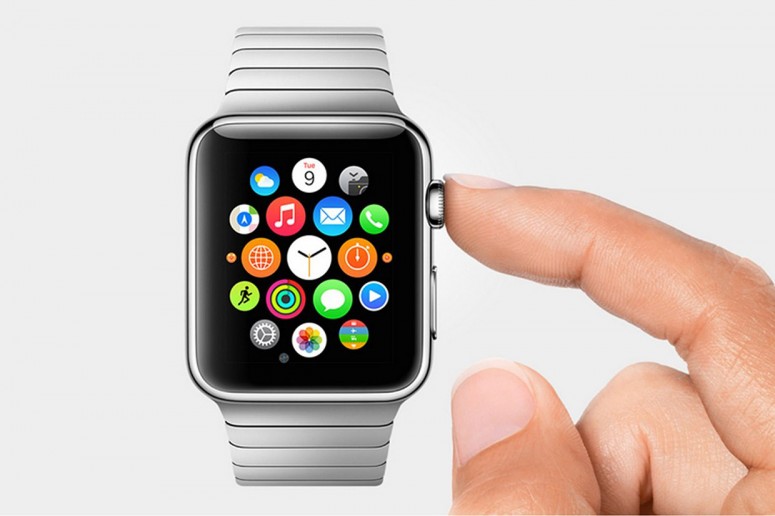
Courtesy Apple
Constantly checking your wrist watch is less rude and less distracting than constantly checking your smartphone. It might even improve your life.
Or so says a report from Wired on why Apple chose to manufacture the forthcoming iWatch, which serves as a second, more accessible screen for your iPocket, I mean iPhone.
“Your phone is ruining your life,” writes David Pierce, who, like many others, ignorantly blames the object instead of the abuser. Rather than setting boundaries on his technology, Pierce and others like him egotistically search for reasons to be elsewhere in thought and suffer the consequence. Continue reading…

Photo: Christopher Michel
From the short and sweet files: “Man sacrifices his health in order to make money. Then he sacrifices money to recuperate his health. And then he is so anxious about the future that he does not enjoy the present; the result being that he does not live in the present or the future; he lives as if he is never going to die, and then dies having never really lived.”—Dalai Lama XIV
See also: American businessman misses point in life, hilarity ensues | more offline issues
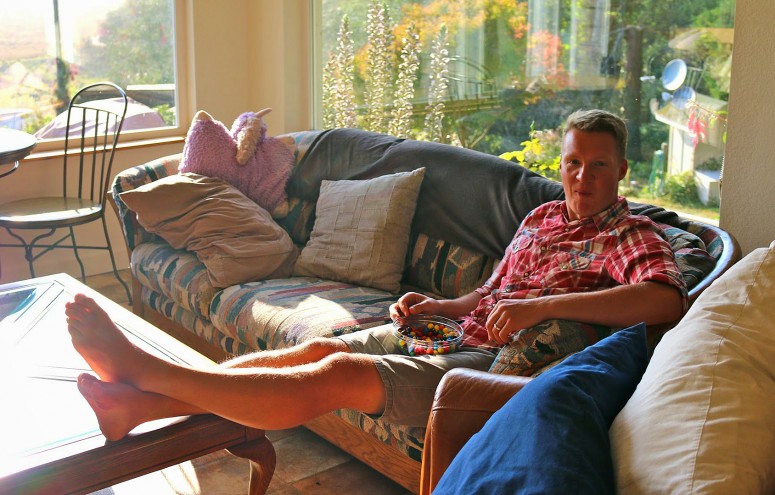
credit: lindsey snow
Bad habits. We all have them. Here are some of mine. But not for long. I’m not doing any of the following any longer. I’m done. For good. Watch me.

credit: lindsey snow
Thanks to my wife, I’ve grown to appreciate winter instead of loathing it. Still, the persistent cold, dormant life, and extended darkness can take its toll on our mood, especially near the tail end of the season.
That said, here are four things everyone can do to beat the winter blues, according to USA Today:
See you in spring.
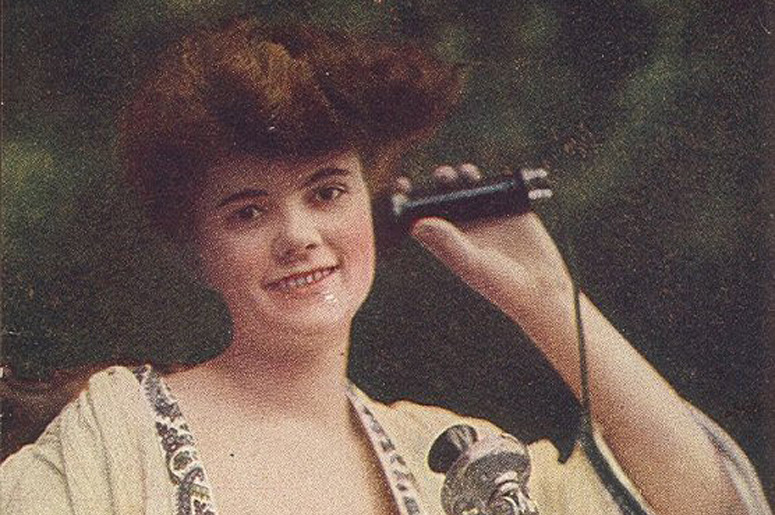
Wikimedia Commons
“I really wish I spent more time on my phone,” said no one ever. I doubt anyone will.
And yet, many of us can’t resist the Kavorka of our phones, in times of idleness or activity. What’s a modern human to do?
Don’t worry, Internet denizens. I got you. After five years on a lean, enlivening, and offline-rich phone diet, here are eight things you can do right now to put your phone in check, free yourself from its compulsive clutches, and live in the moment: Continue reading…

credit: marriage minded mentor
I don’t know if falling in love is more challenging today than it was before. But it can’t be easy with the constant allure, cover, and distraction of smartphones.
Case in point: I saw a guy macking on a girl recently—or at least trying to. He was obviously interested; his attention undivided. She was preoccupied with her phone, however. She occasionally rejoined his advances with peppered smiles and words, but she mostly focused her attention on the tarot card-sized device she cradled in hand and poked at with thumbs.
From a distance, I couldn’t tell if she was coping with embarrassment behind her phone, considering a counter-flirt, or not at all interested. If I had to guess, I’d bet on the latter because newly crushing or in love couples usually stay fixated on each other’s eyes. Of course, interested males are horrible at deciphering this universal truth — always have been, always will, with or without smartphones. But I know first-hand how complicating phones can be to loving relationships. Continue reading…

Wikimedia Commons
“What do you do?” is a question humans often hear. It’s a new acquaintance’s favorite ice breaker because it’s socially acceptable, easy to answer, and easy to process. Doctor. Carpenter. Businessman. Homemaker. Forget and move on.
Problem is, we are so much more than our occupation, even workaholics (although they might not realize it if wholly absorbed by their trade). The better question to ask when meeting new people is this: “What do you like to do?” Asking that will give you a truer glimpse of who someone is, because what we think about and do under no obligation is a better indicator of who we really are.
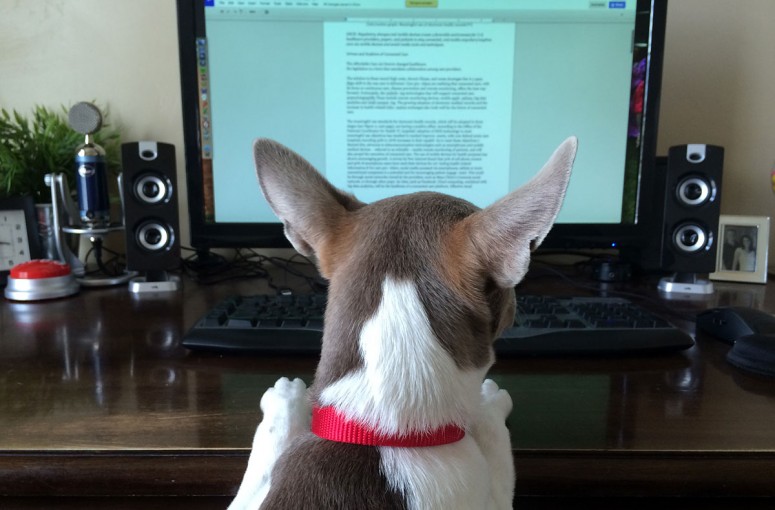
Photo: Blake Snow
Americans rank near the bottom in work-life balance because we work more than anyone, that much we know. (Caveat: We don’t work more than we used to, according to decades of research by John Robinson. We just perceive busy-ness as work and fill our free time with it. More on that later.)
But we don’t have to work as much as we do. Quite the opposite, in fact. “Researchers note that productivity rates have risen, which theoretically lets many people be just as comfortable as previous generations while working less. Yet they choose not to,” reports the New York Times. Even visionaries admit as much. “The idea that everyone needs to work frantically is just not true,” says Google CEO Larry Page. “Reducing the workweek is one way to solve the problem.”
I decided to do just that recently in switching from a five to four-day workweek. Like after I quit working nights and weekends, I won’t ever go back (given the choice). In four days, I’ve gotten just as much done as I did in five, because I waste less time now. As the forward-thinking Jason Fried explains, “Constraining time encourages quality time. When you have a compressed workweek, you focus on what’s important.”
So we have evidence that all this snazzy technology lightens our load, increases our productivity, and allows us to work less. And yet we still choose to work more than we need to. Why?! I’ve researched the issue for my book and came away with the following five answers: Continue reading…

© Blake Snow
My brood just returned from a week long road trip to the Black Hills. At close range, we saw Devil’s Tower (4.5 out of 5 stars), Rushmore (4 stars), the Custer Needles and Sylvan Lake (5 stars), Badlands (4 stars), and… a lot of senior citizens (2 stars—wink). We bumped into a few younger families on our travels, but not many. The vast majority were graying couples.
“Where are all the twenty and thirty-somethings?” I asked my wife. She shrugged.
A moment passed, then she offered, “Maybe they’re at Disneyland.”
“Maybe they’re watching TV,” I added.
Wherever they were, they weren’t outside. Continue reading…

Blake Snow
I quit social media four years ago. By that I mean I quit Facebook, Twitter*, Google+, LinkedIn and other “social networks” that require the declaration and management of electronic relationships. Since then, my personal and professional lives have been greatly enriched. So much so, I don’t plan to join digital social networks ever again. (More on that here.)
Unless, of course, those networks can enhance my physical relationships. Consider, for example, Google Hangouts, an ad-hoc social network. After reluctantly declining six months of invites, my wife recently convinced me to join. I’m glad I did. It’s allowed me to stay in close touch with extended family without colleagues, associates, admirers, like-minded people, or old high school acquaintances getting in the way. It’s also let me indulge in animated gifs.
But even this endearing network has become a distraction at times. By my own doing, it’s sometimes made me lose sight of the big picture. Continue reading…
Ev Williams believes the internet is “a giant machine designed to give people what they want.” In a speech reported by Wired, the co-inventor of Blogger and Twitter added, “We often think the internet enables us to do new things, but people just want to do the same things.”
For instance, we want to socialize, entertain ourselves, learn, and make work easier. The internet does all four better than any other convenience of the last century.
It does this in two ways, Williams explains. “Big hits on the internet (think Google, Facebook, Apple, Amazon) are masters at making things fast and not making people think… But the internet is not a utopian world. It’s like a lot of other technological revolutions.” Continue reading…

Cinemgraphical
I’ve vouched for “email free” nights and weekends for several years now. Work-related email, that is. With proper planning and discipline, I’m convinced 99% of white collar workers would benefit, especially when allowing for no more than 3-4 emergency checks per year. Continue reading…

Samsung / Blake Snow
Unless you want to be average, don’t spend 20 hours a week watching TV. Fullfilment takes time. “I wish I watched more Netflix,” said no dying person ever.
 I slipped up. After resolving five years ago to never work from bed again—thank you, Montana—I did it again recently.
I slipped up. After resolving five years ago to never work from bed again—thank you, Montana—I did it again recently.
“I’ll just work a little,” I told myself. Several hours later, I finally put the computer down. It was AM o’clock and I was fried. With lights off, I stayed up an hour or two longer, still trying to solve work stuff.
Of course, I woke up exhausted and sluggish. Had an unproductive day. Struggled through much of it.
But it was an effective reminder: Working from bed and overtaxing your brain is no way to live—at least for me. To be fully operational, you gotta keep your thirds separated.
After more than a half year of writer’s block, I started typing the second act of my book today.
I’ve always liked the first act, and know how I want to end the book. But I’ve struggled mightily in penning the midriff.
Not anymore. I found my way again. Ain’t nobody’s gonna hold me down—not unfamiliar territory, the possibility of failure (i.e. the world thinking I’m a crap author), and certainly not myself.
In the meantime, might I suggest…

Wikimedia Commons
This edition of the Offline Newsletter is written by an unknown author as told by my father, Brent Snow. As you work to find your digital sweet spot this year, I hope this serves as inspiration.—Blake Snow
There is a story about a billion dollar luxury liner, outfitted with every possible appointment, convenience, necessity, and designed to gratify every decadent demand of its prominent passengers. This floating Taj Mahal, booked solid for months by wealthy citizens and exporters, exhibited a phenomenally delicate profit margin in which time was money. Lots of money. For this great ship to sit idle for even an hour would cost the owners millions of dollars.
As such, every effort had been made to ensure that the ship would operate at peak efficiency. The engine room had as many backup systems and fail-safe mechanisms as an Apollo rocket. No detail had been overlooked in building the most reliable, durable mechanical equipment money could buy. The engine room was staffed by officers, experts, and mechanics from around the world. Each stood vigil in a gleaming white uniform looped with gold braid and brass buttons. Computer systems, draped in matted plastics and steel, lined the walls. Nothing could possibly go wrong. Continue reading…

AP Photo/Tom Stromme
Had a lot of fun recording the latest podcast with Josh this week:
In this Halloween Special of The Offline Podcast, Josh and I discuss the “new normal” work week, an app that supposedly boosts offline encounters, how to turn a small reward into something you’ll treasure forever, and doorbell ditching (aka the best offline experience of the week). Enjoy your life! Music by KC & The Sunshine Band and Tales from the Crypt.
Happy Halloween, readers. May all your Pagan dreams come true.
It should be obvious, but for many it isn’t. They’ve forgotten how to live in the moment, be alone with their thoughts, and use “forever empty” as motivation to better themselves. Continue reading…
[youtube]http://www.youtube.com/watch?v=G3QrhdfLCO8[/youtube]
You can find it here. Have a great weekend, everyone.
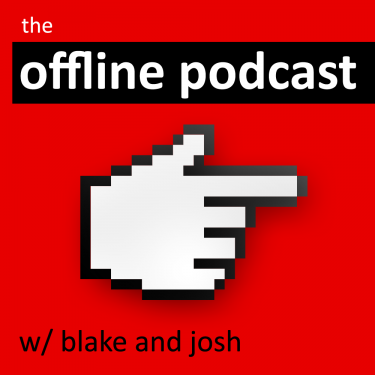
Blake Snow
In addition to sporadic columns and the upcoming book, I’m publishing the first episode of The Offline Podcast today to help spread the message. Here’s what you can expect from the show:  Continue reading…
Continue reading…
[youtube]http://www.youtube.com/watch?v=OINa46HeWg8[/youtube]
“I see the way people use smartphones as a phenomenon that looks to me like a publicly-accepted decline in the way people interact with each other.”—Peter Cohen via Josh Steimle
Hey, you. Yeah, you—the one reading this. The one that says ignorant things like “I’ll sleep when I’m dead,” “I’m busier than you,” or “I only require 3-4 hours of sleep.”
This research by Harvard obviously doesn’t apply to you, because you’re the exception in life. You’re superhuman.
For the rest of us, the study is a convincing reminder of mortality. Not only convincing, but alarming.
Here they are:
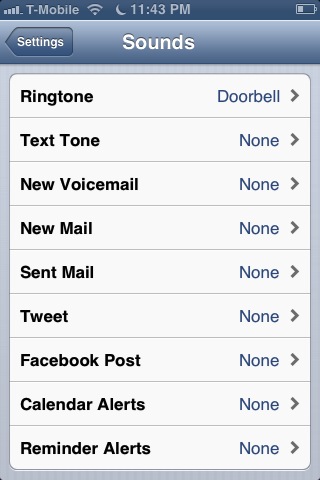
They didn’t always look that way. Like most smartphone users, I used to set all my alerts to interrupt my life the second anything came in. Voice calls. Emails. Texts. Software alerts. Website comments. RSS updates. (Keep in mind this was before social media, so things have gotten worse.)
These distractions understandably drove my wife crazy because I was, in essence, having an affair with my phone. White lies were told when asked, “Blake, what were you doing?” Often times I’d leave the room – or wherever it was we were vacationing – for “a quickie” to avoid sideways glances that accurately accused me of being elsewhere in thought, priority, and identity.
I did this for a couple of years until it drove me crazy. I had formed a love/hate disorder with my phone. I liked it for the conveniences it did then (and now), but I knew I was unable to have a personal life with my leash-phone around. So I began purposefully leaving it behind on nights and weekends. Continue reading…
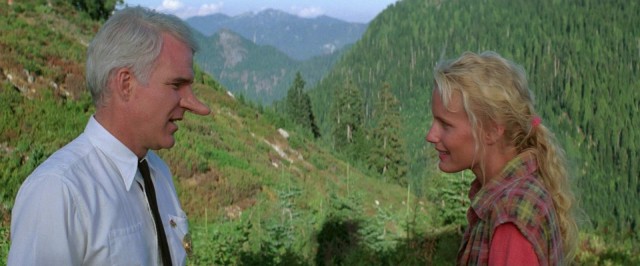
(Note: When reading the below spoiler, it works best if received as Bane would deliver it. Got it? Good. Here’s how it’ll go down.)
White-collar workers will burnout, inspiration will wither. Compulsive disorders will rise, productivity, focus, and attention spans will fall.
Loved ones, friends, and family will be ignored. Mental and physical health will be depleted, and cast out as a deafening level of self-importance surrounds us.
Passions will die. Joy will with it.
But it doesn’t have to end that way. It’s why I’m writing a book on the subject. With guts, discipline, and offline identity, “we will endure.” We’ll eventually put these online devices in their rightful place and be better for it.
But act II of the story will be crucial in getting to the end. I’ll tell you that part later this year.
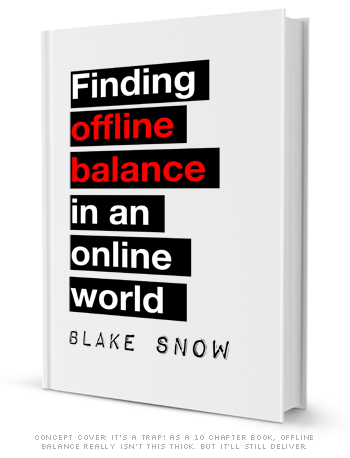 I don’t know the scientific name, but I’m one of the lucky creatures that possesses an insatiable curiosity. As such, I use the Internet not only for work-related and entertainment purposes; I use it to satisfy every conceivable whim I encounter within my immediate environment on any given day.
I don’t know the scientific name, but I’m one of the lucky creatures that possesses an insatiable curiosity. As such, I use the Internet not only for work-related and entertainment purposes; I use it to satisfy every conceivable whim I encounter within my immediate environment on any given day.
For example, I often ask myself, “I like this song—I wonder where this band is from?” Or, “What other films has this director made?” Within seconds, Wikipedia has the answer. Last week, I overheard someone mention the country of Chad—a mystical place in west Africa. “Why haven’t I ever heard of this place?” I thought to myself. An hour later—thanks to Google—I was entrenched in all things Chad and was prepared to write an introductory discourse on the republic to attentive undergrads.
But as with all things in life, too much of anything is unhealthy. Except for maybe air guitar, chocolate cake, and dancing. But I digress. The trouble is we’ve reached a point with personal technology that it is so accessible, so immediately gratifying, and so demanding that digital indulgence is no longer just affecting information junkies like me. It’s affecting everyone. Continue reading…
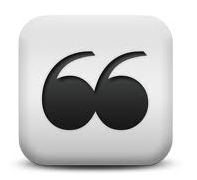 Quotes are a curious thing. They’re presented entirely out of context, so most of them go unnoticed. In the right state of mind, however, they can have a reaffirming or insightful impact on the reader.
Quotes are a curious thing. They’re presented entirely out of context, so most of them go unnoticed. In the right state of mind, however, they can have a reaffirming or insightful impact on the reader.
Here are five quotes that connected and resonated with me most this year:
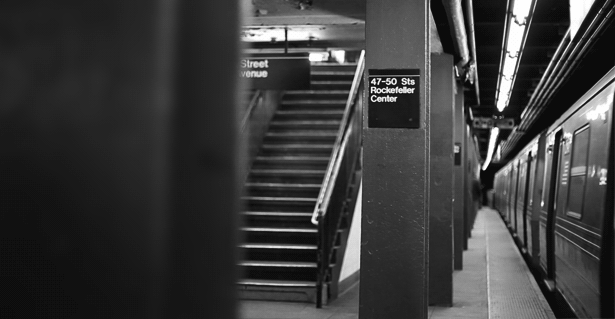 Editor’s note: The Anti-Technologist is a new column by Blake Snow. It advocates late adoption of consumer technology until proven useful, and dishes advice from Snow’s forthcoming book, Finding Offline Balance in an Online World.
Editor’s note: The Anti-Technologist is a new column by Blake Snow. It advocates late adoption of consumer technology until proven useful, and dishes advice from Snow’s forthcoming book, Finding Offline Balance in an Online World.
In 2009, I had a radical idea. “What if I canceled my phone’s data plan?” This was undoubtedly a first-world problem—I get it. But for someone who had previously spent 1,300 consecutive days attached to a Blackberry or iPhone from wake until sleep, it mattered.
The catalyst behind the idea: A weeklong trip in a remote Montana cabin with family and friends. No cellphone coverage. No internet. Just a landline, a moose lick, a horseshoe pit, and a river running through it.
Although initially apprehensive about the trip—”How am I suppose to continue my affair with work while on vacation now!?”— I was molded by it within a matter of days. As my wife said at the time, “With no online distractions, the social aspect had dramatically improved.” Continue reading…
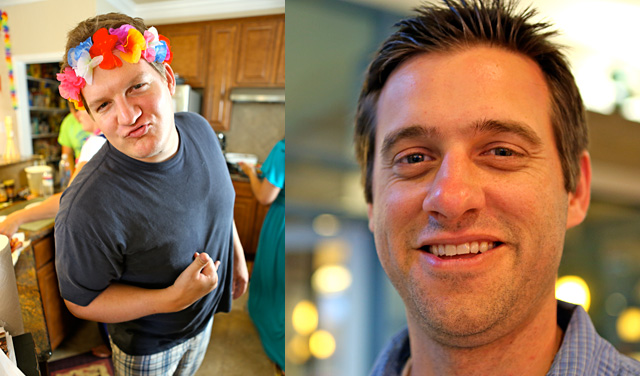
Regular Smooth Harold readers and those closest to me already know I take a hardline to offline balance. With exception to the rare 2-3 emergencies per year, I don’t open email or answer work-related calls on nights, weekends, or during mini vacations. I killed my phone’s data plan three years ago, and I quit Facebook two years ago.
Furthermore, unless its for leisure, educational, shopping or correspondence reasons, I try to stay away from my iPhone, Chromebook, iPad, desktop or any other internet-connected device as much as possible during down time. The strategy has made me a better person, worker, husband, father, recreationist, adventurer, brother, and friend. I’ve even managed to increase my income, despite working fewer hours.
That said, I’m not the only one to have found offline balance. In fact, my approach would largely only work for similar extroverts with similar compulsion disorders. Simply put, there are other ways to find offline balance. Continue reading…
Rachel Stafford recently shared some awesome tips on how to neglect your children. Here are some of my favorites:
 When I was younger and dumber, I used to work 11 hour weekdays, half-day Saturdays, and was mentally distracted with work for much of the rest of time. Although I work for myself and have a ridiculously flexible of schedule, I vacationed very little at the time. I was seeking fortune and professional notoriety. I thought 60+ hour work weeks would get me there faster.
When I was younger and dumber, I used to work 11 hour weekdays, half-day Saturdays, and was mentally distracted with work for much of the rest of time. Although I work for myself and have a ridiculously flexible of schedule, I vacationed very little at the time. I was seeking fortune and professional notoriety. I thought 60+ hour work weeks would get me there faster.
It did’t. It made me counter-productive, short-sighted, and less money on a per hour basis. In fact, Henry Ford discovered this 100 years ago, according to Inc.
As I’ve said before, the idea of overworking yourself while you’re young so you can relax later in life is bunk. Which is why I take issue with the below remark by Amber Mac, writing for Fast Company on how to validate your unwillingness to take time off:
I’m not saying that [notable businessmen who leave work after hours and on weekends] don’t work hard. Quite the opposite. Clearly they’ve hustled for years, propelling themselves into fantastic careers that I would argue finally give them the opportunity to design their lives with the freedom they’ve shared as of late.
Wrong. Some success stories just have different priorities than others. If you’re like most people and are driven by a “getting ahead” mentality, then sure: work your tail off while your body is in tip top shape while neglecting family, friends, and hobbies in the process. Then regret it later as you sit in a empty home with lots of stuff, a deteriorating body, and wishing instead you had followed your passions.
Or you can do it the other way: Work hard during the work day. Want less (aka be content with the simple things in life). Take nights and weekends off to foster relationships, listen to good music, eat good food, read great literature, watch film and volunteer. Then pepper that several times a year with wonderful vacations to see the world.
As for me and my house, we choose the latter.
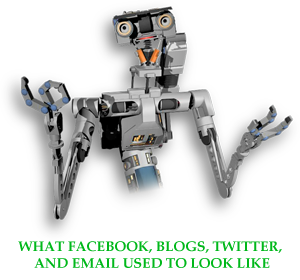 The below commentary by Sherry Turkle in the New York Times is brimming with so much contemporary wisdom, I’m gonna share my favorite excerpts in the hope you’ll not only read the entire article, but ponder what it’s telling you:
The below commentary by Sherry Turkle in the New York Times is brimming with so much contemporary wisdom, I’m gonna share my favorite excerpts in the hope you’ll not only read the entire article, but ponder what it’s telling you:
I spend the summers at a cottage on Cape Cod, and for decades I walked the same dunes that Thoreau once walked. Not too long ago, people walked with their heads up, looking at the water, the sky, the sand and at one another, talking. Now they often walk with their heads down, typing. Even when they are with friends, partners, children, everyone is on their own devices…
During the years I have spent researching people and their relationships with technology, I have often heard the sentiment “No one is listening to me.” I believe this feeling helps explain why it is so appealing to have a Facebook page or a Twitter feed — each provides so many automatic listeners. And it helps explain why — against all reason — so many of us are willing to talk to machines that seem to care about us…
We think constant connection will make us feel less lonely. The opposite is true. If we are unable to be alone, we are far more likely to be lonely. If we don’t teach our children to be alone, they will know only how to be lonely…
Ignore that advise at your own analog peril.
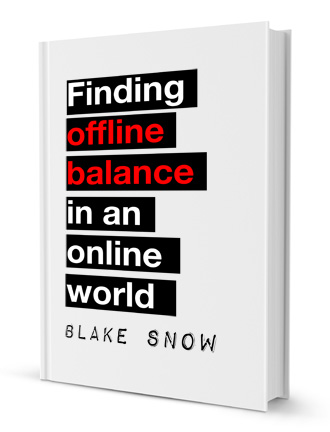 A long-time Smooth Harold reader — and by long-time I mean four days — writes:
A long-time Smooth Harold reader — and by long-time I mean four days — writes:
Dear Smooth Harold,
I’m looking forward to the book you’re writing, but your fans want to know: What technology are you using to write a book about life/tech balance?
Yours in blogging,
David Cole
Cambridge, Mass.
Hi David. I’m writing the book in iA Writer. I’ll also require electricity to turn my computer on, an internet connection, and working plumbing. Does that answer your question?
As for the book, I’ll be launching a website, newsletter, and maybe even a podcast soon with sample chapters and the process I’m going through to ensure the book gets maximum visibility (i.e. the best agent, publisher, and distributor my idea can buy). So stay tuned. And by that I mean keep refreshing this page every 30 seconds for the next several weeks.
Thanks for writing.
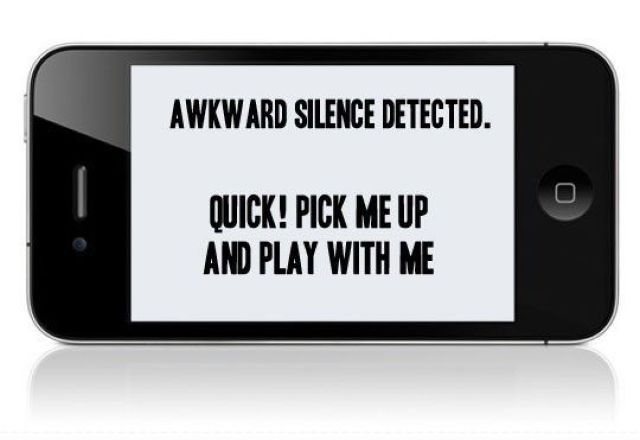
Since it’s related to my book, I was fascinated by this excerpt from USA Today:
“Our brains are sensitive to stimuli moment to moment, and if you spend a lot of time with a particular mental experience or stimulus, the neural circuits that control that mental experience will strengthen,” he says. “At the same time, if we neglect certain experiences, the circuits that control those will weaken. If we’re not having conversations or looking people in the eye — human contact skills — they will weaken.”
In essence, we’re willingly training ourselves to favor online virtual stimuli more than offline real stimuli, which is madness.
USA Today recently published one of those corny but entertaining “man on the street” stories asking people how long they can stay offline. The answers ranged from never, to one hour, to a few days.
In recent years, I suppose the longest I’ve gone offline is a week, what I call my life-changing “Montana Moment” in 2009. Since then, I’ve gone entire nights and weekends offline, but I’ll usually reach for my iPhone for sports scores and other little personal interests over the weekend (but never for work-related reasons on nights and weekends).
What about you: How long and how frequent can you stay offline? And when you do, how much of it is work-related?
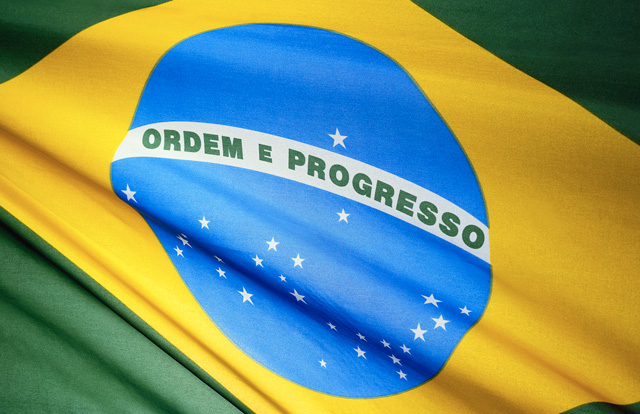
Make sure s/he pays you overtime for every email and after-hours request they send. Like they do in Brazil.
How you like them “Order and Progress”?
 Since the dawn of the web, humans have become increasingly distracted. Our attention spans are crap now.
Since the dawn of the web, humans have become increasingly distracted. Our attention spans are crap now.
But it’s not because of information overload (which is bunk), argues Clay Shirky. It’s because most people don’t know how to filter useful information from noise. Or worse, they have no self discipline and are incapable of saying “no,” “this isn’t or no longer is helping me,” “when,” or “enough is enough.”
As Shirky calls it, “filter failure.”
So the next time you hear someone blaming “information overload” for their lack of focus, remind them to grow and pair and prioritize their life to the point of quitting useless or excessive behavior.
Next!
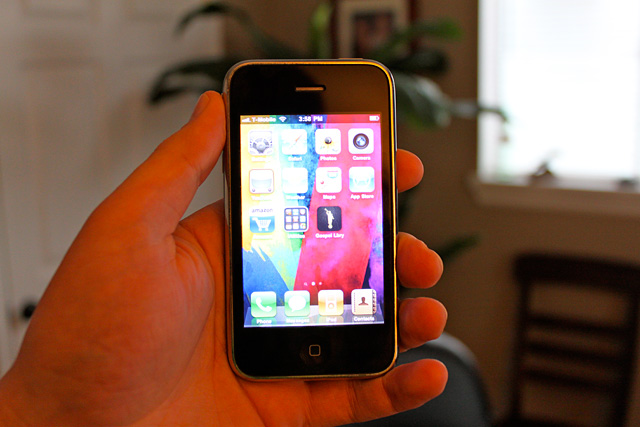 Editor’s note: The Anti-Technologist is a new column by Blake Snow. It advocates late adoption of consumer technology and expels the wonders of finding offline balance in an online world.
Editor’s note: The Anti-Technologist is a new column by Blake Snow. It advocates late adoption of consumer technology and expels the wonders of finding offline balance in an online world.
I’m convinced that cellular data plans will someday replace the broadband cable lines most of us still use to access the internet. I also think data plans are great for mobile workers, extended-stay vacationers, or anyone else who doesn’t have access to the internet for the entirety of the work day.
I also know, however, that the last four years of my life after quitting my data plan have been irreversibly better than the four previous years in which I subscribed to a plan. The reason I abandoned the portable internet? In short, I did it because I was tired of being on a self-imposed work leash. That and the “always there” internet didn’t mesh well with my indulgent lust for information. So I cut it.
A lot of people I encounter are surprised by this, mostly because the mainstream view incorrectly assumes that staying on an internet-connected smartphone for extended periods lets you get ahead in life (i.e. make more money). It doesn’t. It’s just an illusion. In fact, all-day internetting actually leads to less inspired work, since obsessive users are never able to truly break away, recharge their batteries, and return to work with a hungry mind.
Nevertheless, smartphones are still great, even on dumb plans like mine. Here’s why: Continue reading…
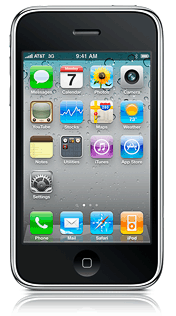 After six (sometimes) productive years, I abandoned the sinking ship that is BlackBerry last week. In it’s place, I upgraded to the “magical,” status-enhancing iPhone.
After six (sometimes) productive years, I abandoned the sinking ship that is BlackBerry last week. In it’s place, I upgraded to the “magical,” status-enhancing iPhone.
As early adopters discovered a few years ago, it’s more than a phone: it’s the greatest piece of personal technology ever invented. Phone, texter, navigator, iPod, mini TV, game console, digital assistant, e-reader, and tiny computer all in one. Not only did it serve as the inspiration for the more popular Android clone, the iPhone is the more organic and less painful version of touchscreen phones, i.e. not unlike what Macs often are to Windows machines.
Of course, like all smartphones, the iPhone can be a total drag on your analog life if you don’t set limits. (In my case, that means shunning a data plan, turning off all alerts except for voice calls, staying away from it as much as possible on nights and weekends, and only connecting to the internet when I need it, as opposed to the more common always-on, always wired, and always distracting “push” internet mode. More on that in my forthcoming book.)
But the iPhone gets a whole lot more right than it gets wrong. In fact, I count only three usability flaws on the device: Continue reading…
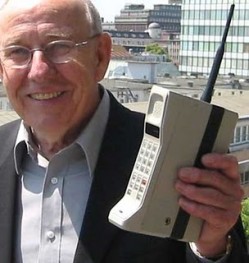 Update: As of 2013, data is now included with my cell phone plan. But thanks to my four year break from it, mobile data no longer interrupts my life like it use to. When used sparingly, it actually enhances it.
Update: As of 2013, data is now included with my cell phone plan. But thanks to my four year break from it, mobile data no longer interrupts my life like it use to. When used sparingly, it actually enhances it.
A year ago this week, I canceled my data plan. The unexpected catalyst was an awesome trip to Montana. After being tied to my Blackberry for four years, here are 10 observations of “my rebirth” into mobile obscurity:
[youtube]http://www.youtube.com/watch?v=Vsghn7OKvg8[/youtube]
When used properly, I think iPhones are nifty devices. Like all Apple hardware, including my two Macs, they have an impressive interface. Still, iPhones are probably the most overstated status device of the decade. Case in point: Apple’s latest “Did you get my email?” commercial (shown), which attempts to embellish and sell three bad behaviors “without ever leaving a call.” Let me tear ’em down for you, may I? Continue reading…
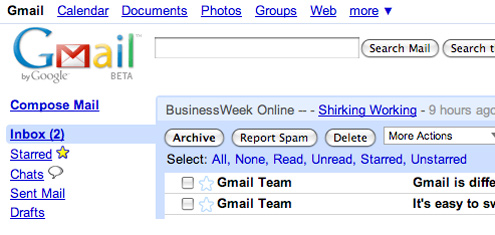
OREM, Utah — After four convenient but usually bad-habit forming years, I canceled my Blackberry email/data plan with T-Mobile last week. To my surprise, I was amazed that my email would actually wait for me on the computer, as opposed to following me around wherever I went. Now, if I’m away from my desk, my email will tell me how many unread messages I have upon my return, so as not to overlook anything. (Some fancy email programs even support audible alerts, such as “You’ve got mail!” Really neat stuff.)
In a flurry of discovery, and in search of more answers, I asked a representative of ARPANET, the inventor of email, for comment. “The great thing about email is that it’s free, provided you don’t give money to your cell phone provider for the same service,” the spokesman said. “And unlike the Post Office, you don’t have to put a hold on your mail if you’re away, say on nights and weekends. If it fits, it ships—which is all the time.”